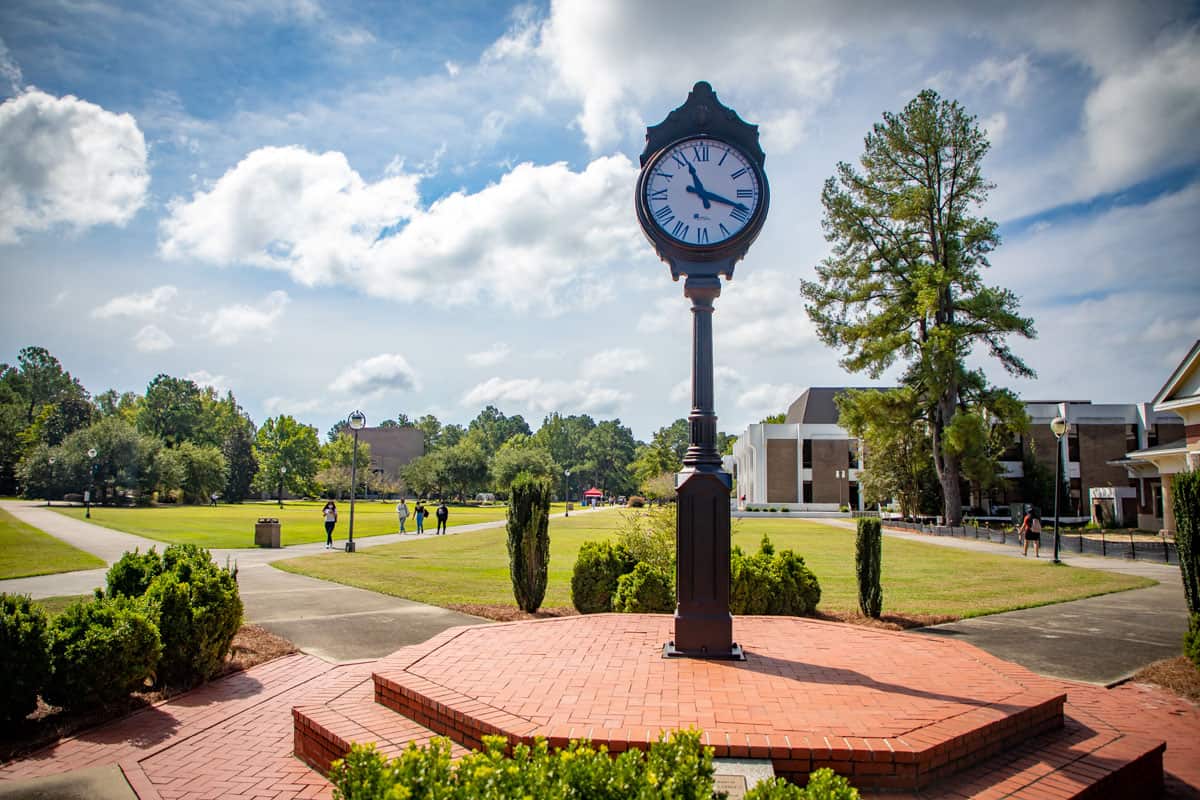June 10, 2021

Two new buildings, more growth, on FMU horizon
FLORENCE — Rapid growth continues to the be main item on Francis Marion University’s agenda as was apparent from University President Dr. Fred Carter’s report to the trustees at Thursday’s regular Board of Trustees meeting on the FMU campus.
Carter told the trustees that it was possible FMU would receive funding for both the Circle Park medical education building and a new classroom building designed to house the University’s School of Business and School of Education this year. Funding for both buildings would come from legislative appropriations.
“We’ve asked for funding for two buildings,” said Carter. “I think it’s possible we’ll receive funding for both. We’ll see how it goes, but if this comes to fruition, we’ll be constructing buildings to accommodate expanding academic programs for the next three years.
“Our faculty has done a great job developing a curriculum for our students over the past few years,” Carter added. “These new facilities would substantially contribute to these instructional enhancements.”
FMU plans to add new programs in environmental science (at the graduate and undergraduate level) and veterinary studies in the next few years. New doctoral programs in occupational therapy and physical therapy are also in the programmatic pipeline. They could start as early as 2024.
The Circle Park facility will house a new, multi-entity medical education consortium created recently to further medical education in the Pee Dee. The participants are Francis Marion University, the Medical University of South Carolina, and the University of South Carolina. The consortium will advance and support a variety of initiatives related to medical and health science education across the region. FMU will operate the Circle Park building on Cheves Street in downtown Florence in collaboration with the other two universities.
The combined School of Business/School of Education building will provide much-needed new classroom and office space for those programs, which constitute two of FMU’s three professional schools. The building would be built on FMU’s main campus.
FMU recently celebrated the largest graduating class in school history. Not coincidentally, the University set a record for its largest student body just a few years prior to that.
In addition to funding for two new buildings, Carter said FMU is also likely to receive several million dollars in appropriations for deferred maintenance. Combined with an already announced $700,000 matching grant from the U.S. Department Commerce, FMU will have the resources to implement a major upgrade of drainage systems, roads, sidewalks, parking lots, and building renovations across campus.
The new projects will be part of a continuing wave of construction at FMU. The University opened two new buildings last year, the Honors Center and the Leatherman Medical Complex, and construction is currently underway on a new ecology research lab and conference center in the northern part of Florence County.
“Of course, none of this would occur without the hard work of our legislative delegation,” said Carter. “Chairman Hugh Leatherman is the dominant voice on the Senate Finance Committee and Representative Philip Lowe is a very persuasive force on the House Ways and Means Committee. Senator Kent Williams and Representatives Jay Jordan, Roger Kirby and Terry Alexander have been strong advocates for our funding in this appropriations process.”
At Thursday’s meeting the trustees also approved two resolutions. The first relaxed some COVID restrictions for faculty, staff and students who have been fully vaccinated. The second authorized the president to pursue the refinancing of institutional bonds for FMU athletic facilities, located at the Griffin Athletic Complex and the Smith University Center. Lower rates will likely save the university 7-10 percent on debt service obligations over the remaining life of the bonds.